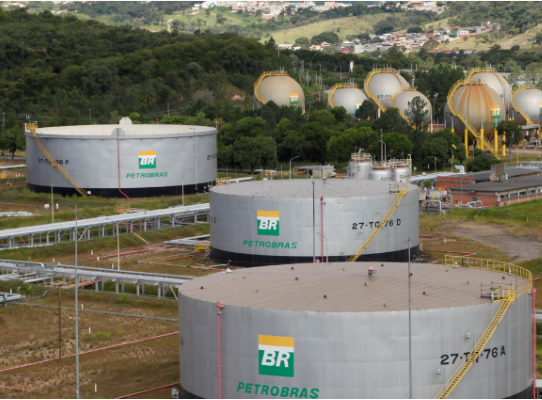Petrobras also recorded production records for three of its main products, considering the refineries currently in its refining par

Petrobras' investments in its refineries generated historic marks in the production of derivatives in 2023. A historic annual record for processing of oil from the Pre-Salt was recorded and 92% of total refinery utilization was reached.
The total utilization factor (FUT), which takes into account the volume of processed oil load in relation to the refineries' reference load (operational capacity), reached 92%, a record since 2014. Over the past year, the company also recorded daily refining records, when registered FUT sometimes reached 100%. Processed oil from the Pre-Salt reached 65%, a historic record that surpassed last year's, which had reached 62%.
Petrobras also recorded production records for three of its main products, considering the refineries currently in its refining park. In 2023, 23.3 million m³ of gasoline were produced, a record since 2014. In diesel production, 41.4 million m³ were reached, a record since 2015. For LPG (cooking gas), the numbers reached 7.1 million m³, a record since 2007.
Jean Paul Prates, President, Petrobras, said: "Even after the sale of four units that processed oil (RLAM, REMAN, RPCC and SIX), the company's remaining set of refineries has been expanded and modernized, including to carry out co-processing of non-fossil oils. The development of technologies, investments in reliability, safety and profitability of refining units are strategic actions for Petrobras. We are expanding and improving the refining park, and investing in an unprecedented modernization that is fundamental for an effective and fair energy transition.”
Petrobras foresees, in its Strategic Plan 2024-28, a CAPEX for the Refining, Transport and Marketing area worth US$ 17 billion, resulting in an increase in processing capacity in refineries by 225 thousand barrels per day (bpd) and in S-10 diesel production by more than 290 thousand bpd by 2029.
In the biorefining segment, US$ 1.5 billion will be invested, which will support the growth of Diesel R5 production capacity (5% renewable content). Within the Plan's horizon, resources are also foreseen for the installation of dedicated aviation biokerosene and 100% renewable diesel plants in RPBC and GASLUB, which will be completed after 2028.
Subscribe to our newsletter & stay updated.